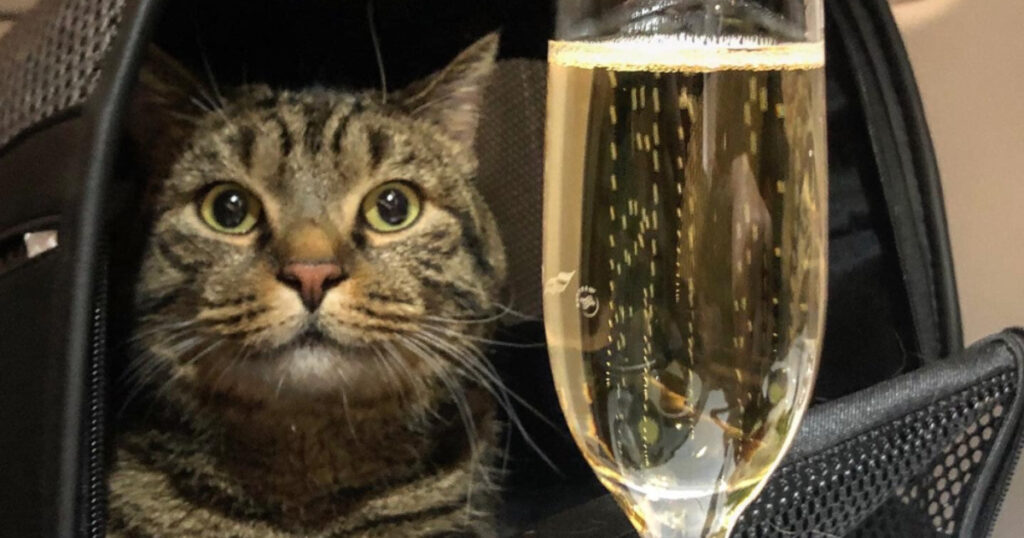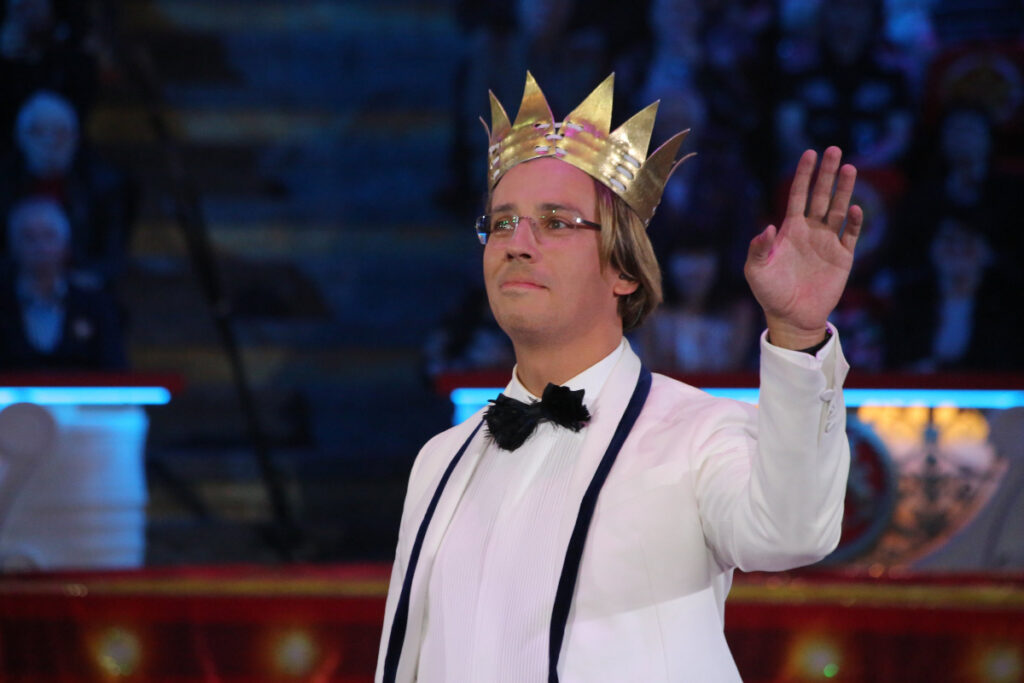
Aeroflot unfazed by fat cat firestorm
Hello! This week, our top story is on a fat cat and why PR works differently for companies like Aeroflot. We also look at the comedian beloved by state television who suddenly decided to criticize Putin, the top officials who could be linked to the 2014 downing of Malaysian airlines flight MH17, car dealership tycoon Sergei Petrov’s decision to sell his business and why Russia’s equity market is the best-performing in the world this year.
Why penalizing a fat cat’s owner isn’t a PR disaster for Aeroflot
When Russian national carrier Aeroflot last year stripped a customer of his air miles for criticizing the company on social media it generated a wave of criticism. But it paled in comparison with a scandal that blew up this week when the world’s media reported about a fat cat whose owner was punished for using some ingenious trickery to get around the airline’s animal weight restrictions. Despite appearances, this wasn’t a catastrophe for Aeroflot’s public relations team: the company has an unassailable position on the market and for years its PR money has been funnelled to meet the whims of the company’s CEO. The Bell even discovered that Aeroflot this year cut its PR budget in half.
- When Mikhail Galin and his cat, Viktor, arrived in a Moscow airport for a flight to the city of Vladivostok it turned out that, under Aeroflot’s rules, Viktor was too heavy to fly in the passenger cabin. Galin did not want to put him in the hold, so he found a similar looking cat and switched the two at check-in, swapping the lighter cat back for Viktor immediately after. The trick worked: Viktor made it to the passenger cabin, and his proud owner posted about it on social media, where the story went viral. Aeroflot, however, wasn’t happy with the trick and stripped Galin of his Aeroflot bonus miles.
- The airline’s decision drew a storm of online indignation and was used by the company’s competitors across the world to makes jokes at Aeroflot’s expense. One of Russia’s largest taxi companies offered Galin compensation for his lost air miles in the form of free taxi rides.
- Britain’s The Daily Mail published an article about the affair with the headline ‘A PR Cat-astrophe’, but seeing it as a PR disaster is a misunderstanding. For Aeroflot, PR does not have the same meaning as it does for most Western companies. This is explained, in part, by Aeroflot’s market position: it accounts for about half of Russia’s air transportation services and has exclusive control of several routes, including those between the U.S. and Russia.
- Historically, the airline was not just a state-owned monopoly, but a cover for Russian intelligence — and former employees of the company have told The Bell that the company is still closely tied to the security services. Until 2009, Aeroflot was led by the son-in-law of Russia’s former president, Boris Yeltsin, and his successor, Vitaly Savelyev, has known Putin since the mid-1990s.
- When you occupy such a privileged position, PR is not really a necessity. Even so, the company has in recent years hired expensive PR agencies and in 2018 spent more than $15 million on PR. Why? The reason seems to be closely linked to Savelyev’s character: for him, PR is a personal weapon.
- This year, however, Aeroflot’s PR budget was slashed almost 50 percent. A source close to the company told The Bell this was due to optimization driven by rising fuel costs. But Aeroflot retains significant media clout: outlets where Aeroflot has big advertising contracts either did not report on the fat cat story, or published articles without naming the company.
Why the world should care
When a major international media outlet writes another story about the fat cat remember that neither global infamy nor a reduced PR budget will hurt Aeroflot’s position in the air transportation market. If you have Aeroflot frequent flyer miles that you value them, try to avoid entering into an online spat with the company.

Comedian adored by state TV turns on Putin
Maksim Galkin is a superstar comedian who hosts the most popular shows on national TV, but this week he was making waves on social media for particularly risque jokes: at a recent concert he ridiculed (Rus) of President Vladimir Putin and state-sponsored propaganda. Now a debate is raging whether, after years of apoliticism, Galkin has really transformed himself into a staunch opponent of the regime — or whether it’s all just an act.
- Who is Galkin? He first became popular in the 1990s when, like his fellow comedians, he joked about politics and was noted for mimicking then-president Boris Yelstin. But as Galkin grew in popularity, he grew more careful, and never spoke about the government. The few exceptions were his 2013 criticism of the so-called homosexual propaganda law and a ban on the adoption of Russian children by foreigners. His wife is the hugely popular singer Alla Pugacheva, 70, who knows Putin personally (while she has never given any indication of being sympathetic to the opposition, she speaks her mind more freely than many). The 43-year old Galkin is both hugely popular among the older generation (he appears on state-owned TV almost every day) and a familiar face to young people: he has 6.6 million Instagram followers and recently opened a TikTok account.

- What did he say? During a concert in the Siberian city of Novosibirsk, Galkin unexpectedly began joking about excessive levels of propaganda on television and how Putin is not concerned by the problems of ordinary people: “He is out there conquering Mars in his mind, and we are complaining about how we go on living. He says: ‘be patient, tighten your belts.’ And we all tighten them – some around their waists, others around their necks,’’ Galkin told the laughing crowd. The comedian then referred to Putin as a pakhan, criminal slang for a mafia boss.
- What was the response? Though the concert in question took place in early October, it wasn’t noticed by social media until last weekend. Since then, there has been a wave of interest and in the last 6 days, Galkin’s name was mentioned almost 250,000 times on social media. Dozens of articles have been written and comments on Galkin’s Instagram thank him for speaking “the truth”. The reaction from his colleagues was less rapturous: hosts on state TV lined up to protest there was no censorship in Russia.
- Why the surprise? If something similar was said by an unknown 25-year-old comedian it wouldn’t have had the same reaction, but Galkin is different: he works on state TV and is very rich (famously, his house looks like a Disney castle). In short, Galkin has a lot to lose.
Why the world should care
Some think Galkin was given permission to criticize Putin and is unlikely to face any official backlash. Others point out that he spoke out this summer in support of journalist Ivan Golunov, arrested on falsified drug charges, and actor Pavel Ustinov, a young actor sentenced to three and a half years in jail for taking part in an opposition rally (both men were later released). Comparisons have even been drawn between Galkin and another famous comedian, Ukrainian President Volodymyr Zelensky. While Galkin has said in the past that he doesn’t have political ambitions, he’s certainly one to watch.
Top officials could be linked to downing of MH17
A Dutch-led investigation into the 2014 downing of a Malaysian airliner over eastern Ukraine released recordings of intercepted telephone calls Thursday showing how top Russian officials coordinated with local rebels in the run-up to the air disaster. As well as Kremlin aide Vladislav Surkov, the officials include Defense Minister Sergei Shoigu and Alexander Bortnikov, head of the Federal Security Service (FSB).
- While Russian military and political support for rebels in eastern Ukraine is well-documented, the Dutch-led joint investigative team (JIT) is the first to provide direct evidence implicating Shoigu and Bortnikov. Shoigu is mentioned in a conversation from 1 July 2014 between what the JIT said were two rebel fighters. “We’re moving towards unity of command,” one fighter tells the other. “What happens next is a bunch of men with a mandate from Shoigu will arrive and kick the local warlords the fuck out of the units… and then people from Moscow will take charge.” Bortnikov appears in a different conversation in which military aid is discussed.

- The JIT’s decision to release the recordings prompted speculation that investigators could pin responsibility for the downing of MH17 (in which 298 people died) on top security officials known to be close to Putin. Bortnnikov, a career security officer, has been head of the powerful FSB since 2008, while Shoigu is the country’s second most popular politician, often seen as a possible successor to the Russian leader.
- Not only do the recordings highlight the role of individuals, but they reveal the chaos and distrust in eastern Ukraine in early 2014 as local rebels, Russian fighters and officials in Moscow sought to organise an armed resistance. In one intercepted call, two men — apparently rebel commanders — have a expletive-laden shouting match before revealing how one gets his orders from the FSB, the other from Russian military intelligence, the GRU. In another exchange, a fighter is told that he will be subordinated to the minister of defense for the Donetsk People’s Republic (DNR). “Who’s that?” he responds in bafflement.
Why the world should care
There is little new information contained in the telephone calls, but the mentions of Shoigu and Bortnikov indicate the JIT is looking at links between MH17 and the most senior figures in the Kremlin and the Russian government. If this were proven, it could be the catalyst for another serious downturn in relations between Russia and the West.
IN BRIEF
Car dealership tycoon to sell business amid criminal case
Businessman and ex-Duma deputy Sergei Petrov said Thursday that he was looking to sell Rolf, the car dealership company he founded in 1991. The businessman, currently living abroad, said the decision was not linked to a criminal case over illegal money transfers that could see him jailed for 10 years, but admitted the worsening investment climate in Russia had played a role. Russian police last month issued an international warrant for Petrov’s arrest. Some have linked the charges, which Petrov denies, to his political outspokenness and criticism of the government. It was not immediately clear who the buyers for Rolf might be, or the price tag. Last year, the company posted revenue of $3.6 billion.
Russia’s equity market is the best performing in the world
Last week, we described how Russian equities are on a bull run. Now we know that the Russian stock market is not simply seeing rapid growth, but outperforming all its global peers. So far this year, its returns have increased 44 percent (growth plus dividends), according (Rus) to Sberbank equity strategist Cole Akeson. In comparison, the MSCI index of Emerging Markets has risen just 12 percent over the same period. And the bull mood is not expected to end anytime soon: analysts told The Bell that they see the market rising 15 percent in 2020 and the dividend payout ratio growing 6 percent. Unlike in the past, both ordinary Russians and international investors are making money on the back of this boom. While share-ownership was never popular in Russia (2.2 percent of Russians have shares compared to 50 percent of Americans), ordinary people are now flooding into the market. Over the last year, the number of retail investors in the stock market has risen 93 percent. One of the most popular investment services among young people, provided by Tinkoff Bank, has this year seen a 242 percent increase in new account openings.




